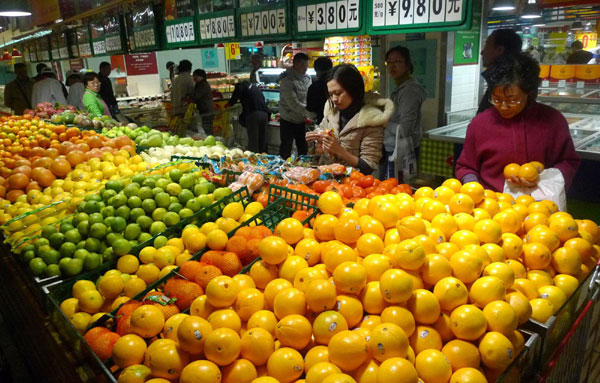Society
- Details
- By David Cao
- Hits: 929
Chinese battery and car maker BYD Co. plans to start test-marketing an all-electric battery car in the U.S. next year, after almost a year's delay, and is in talks with officials in Los Angeles to supply e-buses that could eventually lead to a manufacturing plant in the city, a senior company executive said.
Originally, the e6 vehicle was supposed to launch in the U.S. this year. The delay has been a setback for the global ambitions of China's auto sector, which wants to use electric-vehicle technology to close the distance with more-established global car makers.
Stella Li, BYD's senior vice president and head of its U.S. operations, said the holdup was caused by BYD's efforts to make the car roomier, especially its rear-seat area that was cramped thanks to a beefy battery pack that needs to be stored under the seat.
In a recent telephone interview, she denied that the delay had anything to do with a possible intellectual-property infringement on certain battery technology by BYD.
- Details
- By David Cao
- Hits: 1001

An under-construction viaduct collapse killed 7 Nanjing China, in the evening 26th Nov 2010.
According to official media, 7 workers killed in this accident with 3 injures.
- Details
- By David Cao
- Hits: 922

China's consumer price index (CPI), a major gauge of inflation, rose to a 28-month high of 5.1 percent in November, the National Bureau of Statistics (NBS) said Saturday.
The growth rate picked up from 4.4 percent in October, according to the NBS. The inflation was driven by a 11.7 percent of surge in food prices, which accounts for one third of the basket of goods used to calculate China's CPI.
The year-on-year increase in food prices grew from rises of 10.1 percent in October, 8 percent in September and 7.5 percent in August.
NBS spokesman Sheng Laiyun said the rise in food prices contributed 74 percent to November's CPI.
"Prices will stay stable in the following period of time as long as ministries and regional authorities seriously implement the central government's measures on checking prices," he said.
- Details
- By David Cao
- Hits: 1061
 China is tightening oversight of its cosmetic surgery industry after one of the country’s biggest pop stars died while undergoing a facelift.
China is tightening oversight of its cosmetic surgery industry after one of the country’s biggest pop stars died while undergoing a facelift.
The Ministry of Health in a media briefing Friday said it will standardize surgical practices to promote safer development of the industry, according to a report from state-owned Xinhua news.
Wang Bei, a former winner of China’s reality TV show “Super Girl,” was undergoing facial reconstruction in Hebei province’s capital city Wuhan when her windpipe filled with blood, causing her to suffocate to death.
Demand for cosmetic surgery in China is booming in step with the growing pressure to look perfect. The country performed the world’s second highest number of procedures in 2009, behind the United States, according to the International Society of Aesthetic Plastic Surgery.
- Details
- By Robert Lenzner
- Hits: 884
John Appruzzese, Chairman of the Investment Policy Committee at Evercore Wealth Management, has some very scary numbers about China’s very own QE2 that suggest a possible inflationary bubble that needs to be popped.
Total bank loans in China are $7 trillion– greater than the US economy, which is triple the size of China. In other words China’s inflation might well be “significantly higher” than the 4.4% claimed. More like the 10% inflation in Chinese food prices or more.
Appruzzese reckons that a significant risk from “continued high inflation in China will cause the country’s relative labor and production costs to increase, effectively generating the same result as an appreciating currency without the advantage of additional puchasing power for the imported natural resources.”
I say there’s just as much risky fallout from China’s “now slamming on the monetary brakes.” This is due to the ramifications of China’s slowing on the US, Europe and rest of Asia. Today, if China gets the flu it spreads to western stock markets. It used to be the other way around. It used to be that when New York got a cold, the rest of the world got pneumonia.
More Articles …
Page 121 of 255